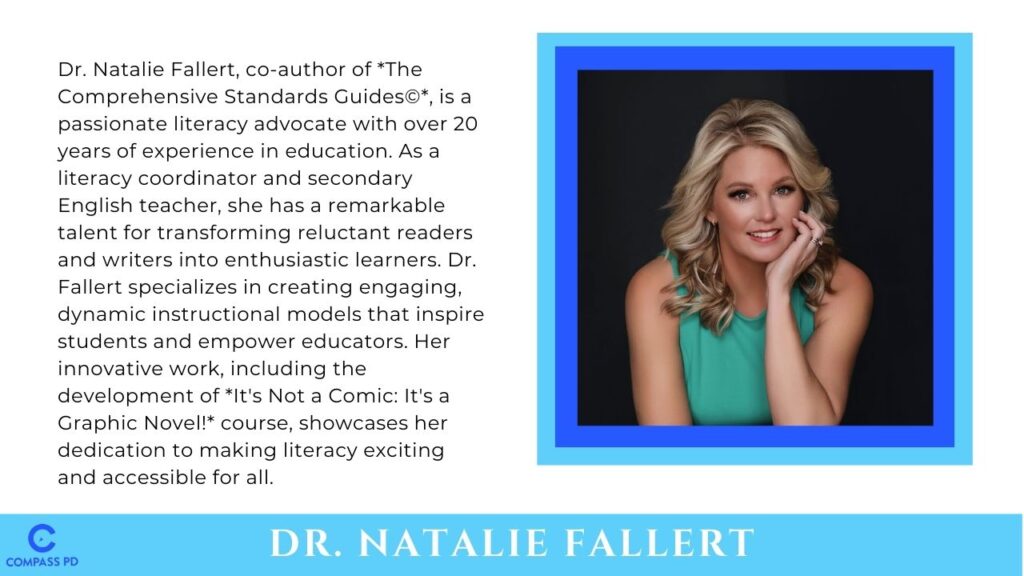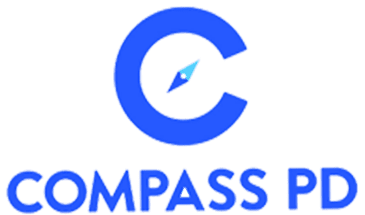The Gift of Learning
By Dr. Natalie Fallert
When I first had the idea of this blog, I wanted to call it “The Gift of Knowledge”; however, after thinking about it, I felt it more important to focus on learning, not knowledge. Let’s face it: knowledge can be something that comes pretty quickly. Knowing something doesn’t mean we took a long time to know it. If it were 1985, I would be willing to rephrase this, but it isn’t. We are in a world where, within seconds, we can know or find out just about anything. I felt it more appropriate to discuss the gift of learning and the productive struggle that comes with the process.
It might sound funny that educators forfeit their rights or pursuit of learning, but it is true. Yes, professional development or learning hours are required for licensure in every state, but this is different from genuinely engaging in learning. With 25 years of classroom, curriculum leader, and consultant experience, I have witnessed learning “redefined,” it becomes the proverbial box that is checked after a day of district-driven professional development, where many teachers are tuned out of the presentation and tuned into grading or online shopping. My hope is that after reading this, you have ideas that will kindle, or rekindle, a love of learning.
Growth for Ourselves
One of my favorite sayings comes from Maya Angelou, “When you know better, do better.” However, the only way to know better is to learn that you are not doing it as well as it could be done. I have a lot of years ahead of me. Yes, I am 48, but I plan to live a lot longer, so I don’t want this to be the apex of my brain capacity, suggesting that it is all downhill from here. I also don’t plan to hang up my professional or social hat anytime soon, so I know that I need to stay up-to-date on the latest trends and the newest approaches and strategies to continue to be productive and effective in this profession. Honestly, my passion for learning is driven by two things: 1) a fear of being wrong or feeling stupid and 2) the need to find a better, more effective way.
I am not the same person or educator I was 20 years ago. I can chalk some of that to sheer experience, but most of my growth has come from learning. I have used my experiences to develop inquiry questions and sought information from experts, professionals, and seasoned veterans to build my understanding and improve my professional approach. Teacher credibility is one of the most significant effect sizes in John Hattie’s meta-analyses. Teacher credibility is where students see their teacher as a credible authority, someone they can turn to for feedback, help, and knowledge. This makes staying informed and up-to-date on best practices and new research even more critical. Learning can make all the difference in an educator’s effectiveness.
Modeling Learning for Others
Being an active learner who seeks out opportunities to learn different information in various ways is one way of relating to students and teachers. Modeling instruction and learning is one way to accomplish this. It also refines our skills and allows us to practice the learning process continually. Consider the six phases of learning outlined in Learning That Sticks. When I model this for students and colleagues as an active learner, I become more relatable and credible in the classroom.

Applying the knowledge of the six phases can considerably impact any educator. When you consider these phases, you can quickly apply them to the practices in your classroom. The first phase is to become interested in the topic. If it is a topic I don’t care about or a problem I don’t wish to solve, my interest in learning about it diminishes. This same holds true for any learner.
If you think back to the last time you traveled through this learning process, I am sure you will find that in phases 3 and 4, you were probably very frustrated and ready to give up. Showing others how vulnerable we as leaders can be in the learning process helps teachers and students see that these phases are natural and helps produce a growth mindset. Publicly going through the learning process also helps us empathize with others while they learn new things.
Sharing Learning with Others
I was leading professional development for my district years ago. I opened with the rhetorical question: “When was the last time you learned something you couldn’t wait to share with others?” Then I followed with this, “Did it happen five times in the last year? What about three times? Once in the last year?” The point is that we are with students approximately 185 days a year as educators. Each day is a new lesson or skill. Rarely do we teach the same lesson twenty times a year. If we are not learning anything worth sharing with colleagues or our students, how can we truly say we are becoming more effective with each passing year?
There are times when our learning takes us down a negative path. A path that tells us, “Hey! Don’t do this or use that!”. Learning doesn’t always have to leave making us better; it could result in just not making us worse. All of these are worthy things to share with others. They may grow as well!
Many teachers are fine with standing in front of twenty kids, leading them to a brighter future, but then they hide in a shell if asked to share their knowledge and practices with their colleagues. Please do not think sharing your learning must be a planned production. It can be a conversation at lunch, a quick email link, or posting it on social media.
Challenge to Educators
As we close out another calendar year, I challenge you to find your love of learning. Consider some of these starting points:
Something you…
- want to learn more about.
- want to do better.
- are afraid of.
- said you would never do or are firmly against.
- hear your students talking about.
How can you nurture that learning? Even if it isn’t something that will help you professionally, I challenge you to open yourself up and be willing to share your new learning with others.
References:
Fisher, D., Frey, N., & Hattie, J. (2016). Visible learning for literacy, grades K-12: Implementing the practices that work best to accelerate student learning. Corwin/ A SAGE Company.
Goodwin, B., Rouleau, K., Abla, C., Baptiste, K., Gibson, T., & Kimball, M. (2023). The new classroom instruction that works: The best research-based strategies for increasing student achievement. ASCD, ; McRel International.

